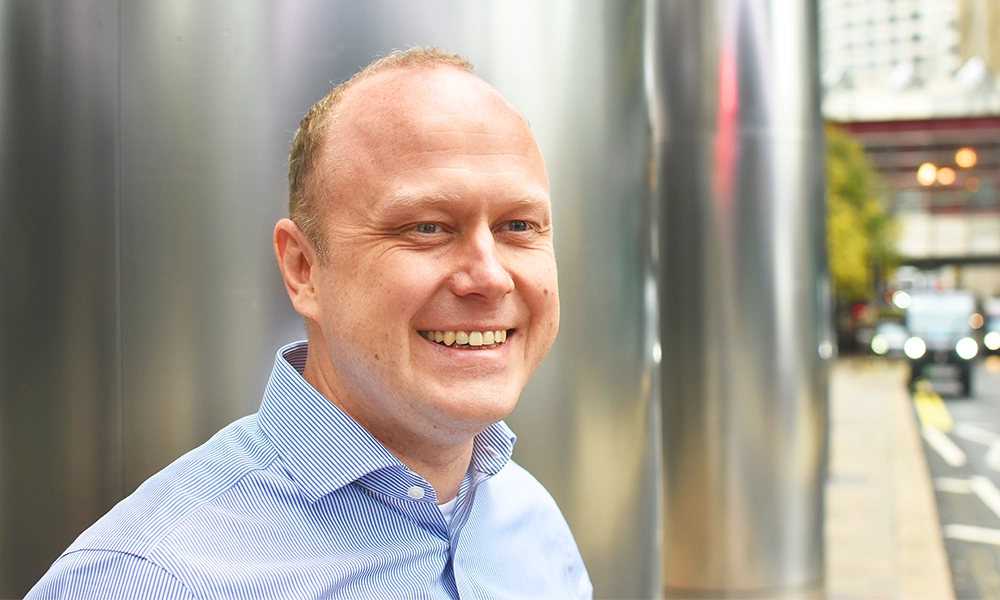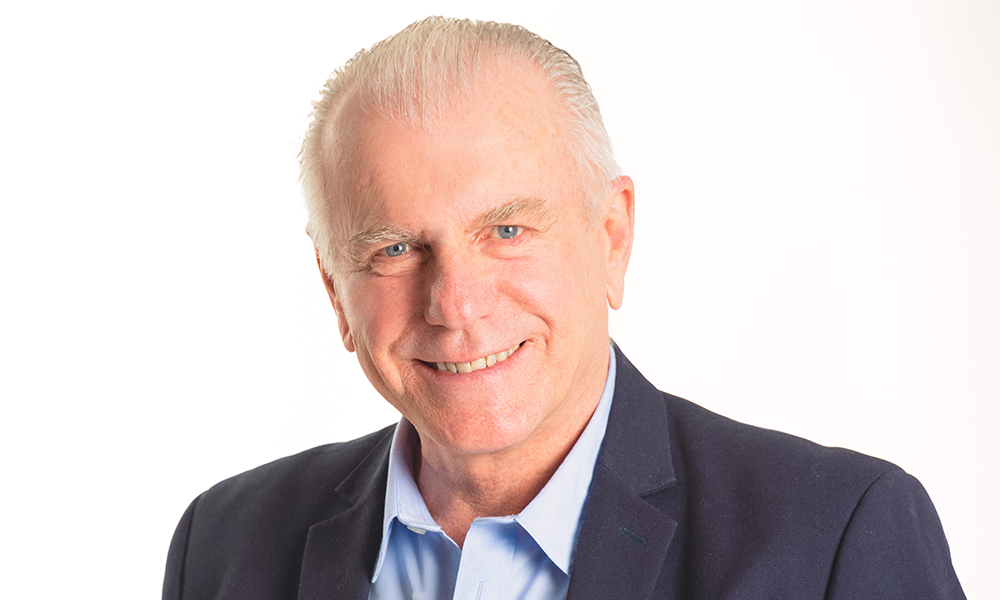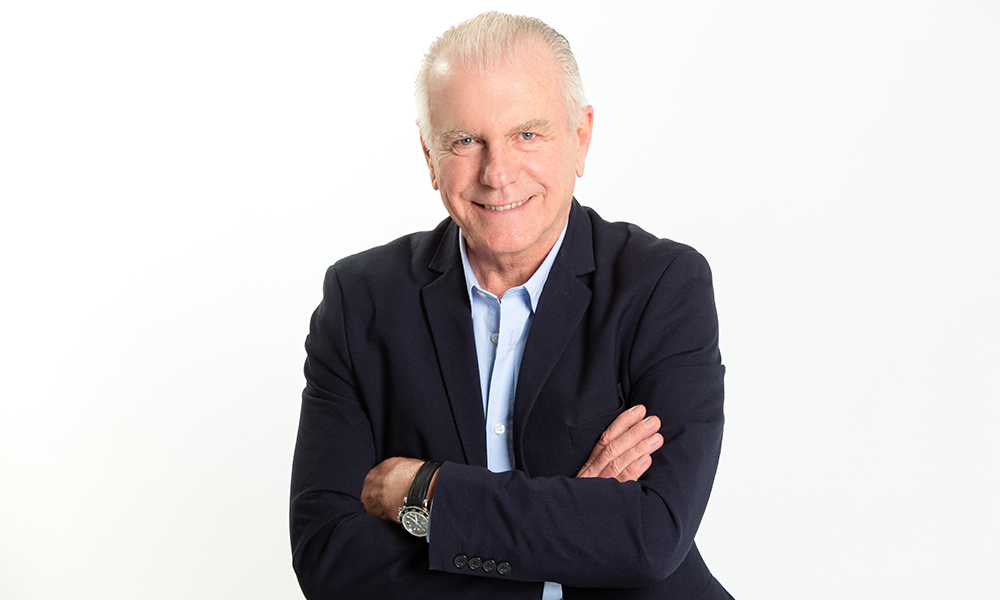Created by entrepreneur Alexander Legoshin, the Canary Wharf based company offers regulated payments services to speed up firm’s journeys

Subscribe to our free Wharf Whispers newsletter here
Alexander Legoshin’s entrepreneurial journey officially began at the age of nine, selling newspapers and then groceries.
By 10 he’d already decided he’d like to build his own bank – “something significant, something that would help people”.
He said: “Business was something I was always interested in.
“It was easy to do after school and my parents didn’t earn a lot, so it was helpful for me and the family.
“I’ve always been an entrepreneur – I’ve never worked for a company except my own.
“Maybe it’s good to be employed by an organisation, but it just didn’t happen – I don’t have that track record.”
What Alexander does have, however, is a consistent history of creating companies.
Born in Russia, he finished school before going on to study at the Moscow State Institute Of Radio Engineer, Electronics And Automation.
always an entrepreneur
“The first company I started was in my first year of university and it just went on from there,” he said.
“I’m an IT person by education and my project for graduation was to develop a content management system.
“That ended up being too big for one person and became my first business.
“I managed to grow that company over six years before moving into marketing.
“That business dealt with media strategy and media buying and had a lot of high profile clients such as HSBC when they started operating in Russia.”
Further change came in 2014, when Alexander decided to leave the country of his birth, moving to Latvia.
In 2015 he sold his Russian business and launched a consultancy firm, working in corporate information and investment, with spells spent living in the Netherlands and the USA before embarking on his latest venture.
“In 2017 I had an idea to build a financial services company which I’m managing right now,” said Alexander.
“It was a long journey because we decided to get our own licence and build a product, which took about four and a half years.
“The first version wasn’t as successful as we wanted, but last year it turned into a successful business.
“We grew significantly in terms of customer turnover and revenue.”
Based at Canary Wharf’s tech community, Level39 in One Canada Square, Gemba takes its name from a Japanese term for a place where value is created in a business – the factory, a construction site or the sales floor, for example.
It’s where the real work happens.
“A good definition of what we do is that we act as an invisible bank,” said Alexander.
“We’re regulated by the Financial Conduct Authority as an authorised payment institution and we offer companies banking and payments services so that they can serve their customers.
“If you have an idea for a fintech business, for example, there are delays. To operate, you need to be regulated, to build the product and so on – there’s a wait to get a licence.
“What we offer is a way for companies to implement their ideas quickly without having to wait.
“They can use our white label solution – our infrastructure – to operate their business under their brand and retain their customers.
“We take care of delivering the services and all of the compliance and regulation in the background.
“Clients pay either a fixed fee to Gemba for those services or a percentage of payments.
“It literally takes seven minutes for a firm to start – everything is automatic.
“We offer secure payments, seamless accounting integration and fully integrated management solutions that fit an organisation’s workflow.
“Clients can create accounts for their companies and customers, design and issue cards with their own logo and either use our ready-made banking app or build their own using Gemba’s technology.
“We’re not technically a bank but we offer a full banking solution.
“Payments are the bloodstream of businesses – you don’t get the service unless you pay for it.
“At present, our licence doesn’t allow us to take deposits or make loans but we can do everything in terms of payments.
“Hopefully, we’ll be introducing deposits quite soon.”
basing Gemba in London
With a target market of fintech firms and accountancy businesses, Alexander decided to base the business in London.
He said: “Initially it was a decision about where to go for a licence – Luxembourg or London. We chose to apply to the British regulator because London is one of the financial capitals of the world and the market is huge.
“Initially, when we started building the product, I didn’t live here but I moved to the city about three years ago.
“My wife and I like London – it’s convenient because it’s located between Europe and the USA, which is great.
“We now have around 40 employees, with about half based at Level39 working in banking from Canary Wharf.
“Other staff work remotely under contract – they’re comfortable living in their own countries, so we don’t bring them to the UK unless they want to come.
“Level39 isn’t just an office space – it’s a community of like-minded people that acts as an accelerator for those who are trying to do something good in this world.
“They run a lot of events and it’s a really lovely place to be.
“Kudos to Amy French, its director and her team.
“The cost of the office space is comparable to other locations and perhaps a bit less than the City, but it’s a nice place to work.”
building a network
Gemba has made much of being part of the community, engaging with the likes of Barclays in the past.
The company was also selected earlier this year to participate in the JPMorgan Chase Fintech Forward Programme, a 12-week accelerator developed in collaboration with EY.
The scheme intends to support early stage fintech businesses, aiming to shape the future of financial services through innovation and technology.
Alexander said: “Being selected for the programme is an exciting opportunity for Gemba to collaborate with global leaders in financial services.
“It will help us accelerate our mission to deliver more efficient, accessible, and innovative financial solutions for businesses worldwide.
“Our full-stack platform and profitable revenue-share model are already built for high-speed, compliant growth—and this partnership will dramatically enhance our ability to empower the next generation of fintechs.”
looking ahead
In the future, the company plans to continue growing its customer base targeting financial startups as well as accountants and communities wanting to offer banking services.
Alexander said accountancy was a natural partner for his firm as Gemba was able to offer a “friction-free” experience for a practice’s clients thanks to information sharing to satisfy compliance request.
He also said that communities wishing to handle money could use Gemba to handle their own customers with a pilot scheme already in operation in London to explore opportunities.
“As a 10-year-old in Russia, I wasn’t thinking of Canary Wharf, of course, when I was imagining building a bank,” he said.
“But I was thinking about having my company’s name on a building.
“Perhaps we’ll get to that point.
“I wouldn’t say it’s a plan to do that – more like a dream – but by working step-by-step we may get to the point where the dream comes true.
“Right now, it’s great to be based at One Canada Square – it’s a landmark building and absolutely tourist material.
“People know Tower Bridge, The Gherkin and this building in Canary Wharf.”
key details: Gemba
You can find out more about Gemba’s services for businesses on the company’s website here.
Read more: Artship to sail to the Isle Of Dogs






